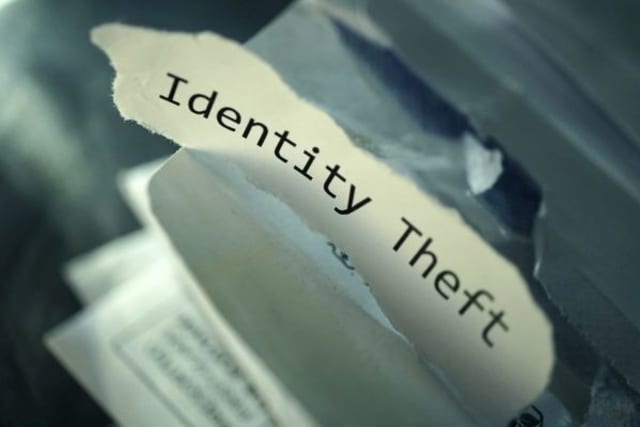In today’s digital age, your personal information is more valuable than ever and more vulnerable. Identity theft happens when criminals use your personal or financial information to commit fraud. Once an identity thief gains access to your Social Security number, credit card, or bank account, they can drain your savings, open loans in your name, or even steal your medical identity.
Understanding how to protect yourself from identity theft is essential to maintaining your financial security and peace of mind.
What Is Identity Theft?
Identity theft is the unauthorized use of another person’s Personally Identifiable Information (PII), such as your name, address, Social Security number, or financial records, for fraudulent purposes.
An identity thief may use your information to open new credit cards, access your insurance benefits, file fake tax returns, or even commit crimes in your name. In many cases, victims only discover the problem after noticing unusual charges on bank statements, missing billing statements, or calls from debt collectors about accounts they never opened.

How Identity Theft Happens
Identity theft can occur online, by phone, or even through stolen mail. Some of the most common methods include:
- Phishing scams: Fake emails, text messages, or phishing sites that appear legitimate but are designed to trick you into entering your credentials.
- Data breaches: Massive leaks of personal data from retailers, healthcare providers, or financial institutions.
- Phone fraud and online scams: Imposters pretending to be from the Internal Revenue Service (IRS), Social Security Administration (SSA), or your bank.
- Physical theft: Stolen mail, wallets, or even unshredded documents containing your financial records or Protected Health Information.
- Public networks: Unsecured Wi-Fi networks that allow hackers to intercept your digital wallet or account details.
Understanding how these attacks happen is the first step toward preventing them.
Recognizing the Warning Signs
Early detection can make all the difference. Watch for these warning signs of identity theft:
- Unfamiliar accounts or loans on your credit report
- Missing bank statements or unexpected withdrawals
- Bills for medical information or insurance benefits you never received
- Notifications from the IRS about a tax return you didn’t file
- Sudden drops in your credit score or denied credit applications
If any of these occur, act immediately to report identity theft to the Federal Trade Commission (FTC), your bank, and the major credit bureaus.
Steps to Protect Your Personal and Financial Information
Protecting yourself from identity theft requires consistent effort. The following steps will help safeguard your personal data, medical information, and financial records.
1. Review Your Credit Reports and Accounts Regularly
Check your credit report at least once a year for credit report errors from each major credit bureau (Equifax, Experian, and TransUnion). These reports show all accounts opened in your name and can help identify fraudulent activity early.
Set up credit monitoring and account alerts so you receive immediate notifications of suspicious activity. Always review bank statements and billing statements carefully, paying close attention to payment due dates and unfamiliar transactions.

2. Use Strong Passwords and Multi-Factor Authentication
Secure your online accounts with strong, unique passwords. Use a password generator or a trusted password manager to avoid reusing the same password across multiple sites.
Enable multi-factor authentication (MFA) for your financial, email, and social media accounts. Use an authenticator app rather than text messages whenever possible for greater protection. Keep your devices and browsers, like Google Chrome, updated with the latest security patches.
3. Freeze or Lock Your Credit
A credit freeze restricts access to your credit file, making it harder for criminals to open new accounts in your name. Contact each credit bureau individually to request a freeze. You can lift it temporarily if you need to apply for new credit.
You can also opt out of prescreened offers to reduce the risk of unauthorized credit applications. These steps can be done through the FTC’s online portal or the bureaus directly.
4. Stay Alert for Scams and Fraud Attempts
Never click on links in unsolicited emails or texts. The Federal Bureau of Investigation (FBI), Department of Homeland Security (DHS), or Office of the Attorney General will never request personal details through unverified channels.
Stay informed by reading Consumer Alerts from the National Cybersecurity Alliance, Cybersecurity & Infrastructure Security Agency (CISA), and the Federal Trade Commission. These organizations frequently issue updates on new phishing scams, cybersecurity risks, and online fraud tactics.
5. Protect Your Medical, Tax, and Insurance Data
Criminals can exploit your medical history or file fake insurance claims. Regularly check your health plan summaries and medical records. Report suspicious claims to your provider and state insurance regulators if needed.
For tax-related fraud, contact the Identity and Tax Return Verification Service or the Security Summit through the Internal Revenue Service. These programs help confirm legitimate returns and protect your Identity Protection PIN.
6. Secure Your Devices and Network
Secure your devices with firewalls, fraud protection software, and encrypted Wi-Fi. Avoid public Wi-Fi for financials and sharing sensitive info on untrusted networks. If possible, enable dark web scans or identity monitoring through reputable identity protection services. These tools alert you if your information appears on the dark web.

7. Safeguard Physical Documents
Identity theft isn’t always digital. Shred outdated financial records, bank statements, and medical bills before disposing of them. Keep sensitive items like your Social Security card and biometric records locked away securely.
Even small habits, like making sure to lock your doors and limiting who has access to your mail, play a role in fraud prevention.
8. Act Fast if You Become a Victim
If you believe your identity has been stolen, don’t wait. Take these steps immediately:
- Report identity theft to the Federal Trade Commission through IdentityTheft.gov.
- File a police report with local law enforcement organizations.
- Notify your bank, credit card companies, and the major credit bureaus.
- Contact the Social Security Administration, Internal Revenue Service, and United States Postal Inspection Service if your information was used in federal-related fraud.
- Document all communications for reference and dispute purposes.
You can also seek support through the Identity Theft Resources Center or other criminal justice information services that specialize in recovery and victim assistance.
Making Identity Protection a Daily Habit
Protecting your identity is an ongoing effort, not a one-time fix. Continue practicing cybersecurity awareness, reviewing your privacy policy agreements, and updating passwords regularly. Stay informed about new cyber crimes and fraud prevention trends from agencies like CISA and the National Cybersecurity Alliance.
Even deceased persons can fall victim to identity theft, so monitor and secure the data of family members when managing estates or insurance benefits. Staying proactive ensures that your financial security and reputation remain protected.
Learn More: How to Fix Credit Report Errors
Take Control of Your Identity Today
Your identity is one of your most valuable assets, and once stolen, recovery can be time-consuming and stressful. The good news is that prevention is within your control. By monitoring your credit report, securing your Social Security number, and following proven identity protection practices, you can reduce your risk of becoming a victim.
If you suspect identity theft or notice inaccuracies on your credit report, professional help can make all the difference. Fair Credit Attorneys works with victims of identity theft to repair credit damage, resolve fraudulent accounts, and hold responsible parties accountable under the Fair Credit Reporting Act.
Take the first step toward reclaiming your financial confidence. Contact Fair Credit Attorneys today at (866) 381-6444 for a free consultation and learn how to restore your good name and protect your future.
Frequently Asked Questions
1. What should I do first if I suspect identity theft?
If you believe someone has stolen your personal or financial information, immediately report identity theft to the Federal Trade Commission (FTC) through IdentityTheft.gov. Contact your bank and credit card companies to freeze or close affected accounts, place fraud alerts with the credit bureaus, and file a police report with your local law enforcement organization.
2. How can I protect my Social Security number from identity thieves?
Keep your Social Security card in a safe place and never carry it in your wallet. Avoid sharing your Social Security number over the phone or online unless absolutely necessary. Verify that any request for your SSN comes from a trusted organization such as the Social Security Administration (SSA) or another verified government agency.
3. Is credit monitoring worth it?
Yes. Credit monitoring services alert you to changes on your credit report, such as new accounts or inquiries. Many offer identity protection tools and dark web scans, which can help detect fraud before it causes serious financial damage.
4. What is the difference between a fraud alert and a credit freeze?
A Fraud alert tells lenders to take extra steps to verify your identity before opening new accounts. A credit freeze, on the other hand, completely restricts access to your credit file. Both are free and can help prevent new accounts from being opened in your name.



